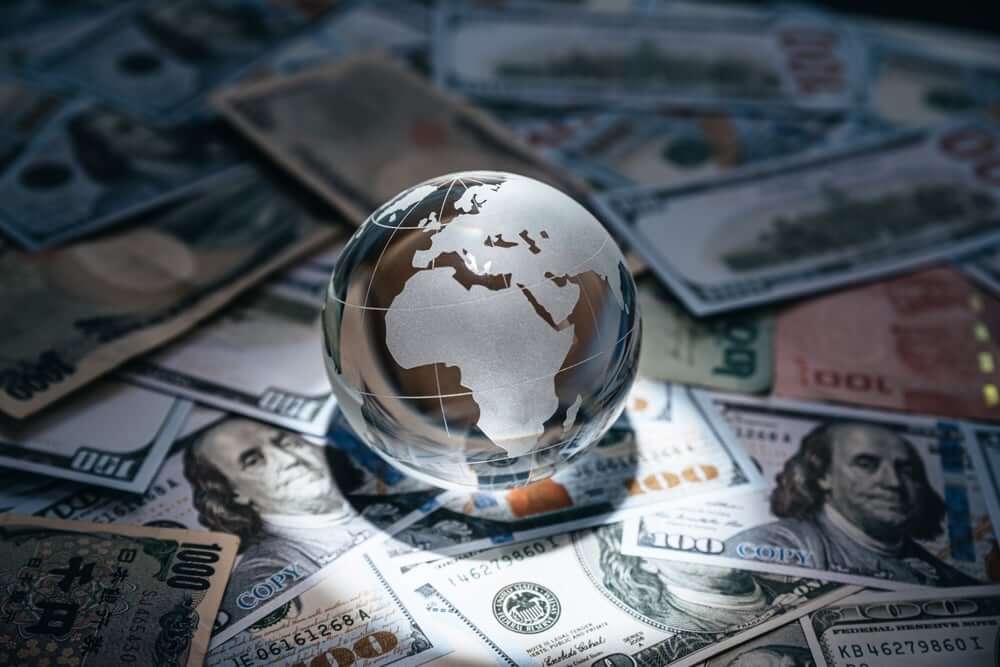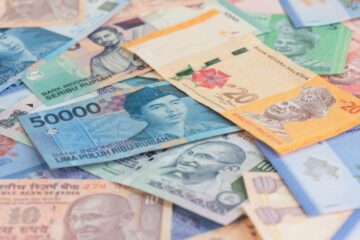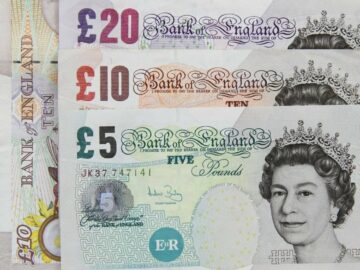Economic interdependence happens when countries depend heavily on each other to supply, trade, and use goods and services. This concept is a cornerstone of globalization. It emphasizes the intricate network of trade, investment, and the flow of capital across borders. It illustrates how economies connect. Furthermore it creates a complex system where changes in one area can ripple through the entire network.
What is economic dependence?
Economic dependence means one country needs another for important goods, services, or support. This dependence can range from relying on imported oil to depending on foreign technology and investment. While related to economic interdependence, economic dependence often highlights a more one-sided relationship. And the wellbeing of one economy is closely tied to the actions of another.
Types of economic interdependence
Trade interdependenc
Trade interdependence is a key part of the global economy. The relationship between the United States and Bangladesh serves as a prime example.
Bangladesh, a South Asian country that became independent in the late 20th century, aimed to grow its economy. It found an opportunity in the textile industry. The cost of living and wages in Bangladesh are lower than in the U.S.
Therefore textile factories there can pay their workers less. It makes clothes cheaper to produce. This situation creates many jobs in Bangladesh, helping its economy. At the same time, Americans benefit from having access to affordable clothing.
This trade relationship is crucial for both countries. Therefore stopping this trade would have significant negative effects beyond just the textile industry.
Monetary interdependence


Monetary interdependence is present in the Eurozone. Countries in the European Union use the Euro as their common currency.
This group included 19 countries in 2021, with more planning to join. Using the same currency makes trade easier among these nations and promotes unity.
However, not all countries in the Eurozone have strong economies. For example, Greece faced bankruptcy following the 2008 global recession, and Italy and Portugal also struggled. These problems threaten the value of the Euro.
Unlike in countries with their own currencies, a financial crisis in one Eurozone country can affect all members. To protect the Euro’s value, economically strong countries had to support those in trouble, like Greece, during the recession.
Capital interdependence
At the start of World War II, the auto industry showed how economies can depend on each other.
American car companies, such as General Motors, had factories in Germany. However, due to Hitler’s actions and the war, these companies couldn’t ship their cars globally anymore.
Additionally, the factories were damaged by American bombing raids because they had been changed to make military vehicles.
This situation hurt both the American companies and Germany. The companies lost their factories, and Germany lost the tax money it used to get from these businesses.
What is an example of interdependence?
A good example is the trading relationship between the United States and China. The U.S. needs China for manufacturing various products like electronics and clothes.
China relies on the U.S. to buy these goods and for American technology and crops. In turn, China depends on the U.S. market to purchase these goods, along with American technology and agricultural products.
This relationship demonstrates how trade ties bind countries together, creating mutual benefits but also vulnerabilities.
Understanding Economic Interdependence


Finding real-world examples of Economic Interdependence is pretty easy as it exists almost everywhere. All businesses, organizations, companies, and countries are deeply rooted in the whirl of economic interdependence. Every business is economically dependent on other businesses and so are countries.
The reason for such interdependency is the ability of each business, or country to specialize in certain kinds of products only. Specialization results in better efficiency and higher quality. So businesses tend to produce only specific kinds of goods, while the rest of them are either imported or outsourced.
Such a condition means that the operationality of every business can be slightly or greatly influenced if any other entity in the economy is affected. Therefore, each business is deeply bound to different segments of an economy. Also any economic change affects all businesses within an economy drastically.
Higher the product specialization, the higher the production efficiency. However, a higher specialization also means a higher economic interdependence. For instance, if an organization excels at producing baby food, it must have expert Pediatricians and nutritionists on board. It also needs specialized working staff and equipment. However, it may not be possible for the company to grow wheat as well. Therefore, they would have to import it from a wheat vendor.
Similarly, the wheat vendor is dependent upon such food manufacturers for the sale of his wheat crop. In this way, every vendor, supplier, manufacturer, and business is dependent on other businesses for the continuity of their operations.
Causes of Economic Interdependence
The causes of economic interdependence include technological advancements, lower transportation costs, and the removal of trade barriers, all hallmarks of globalization.
These factors have made it easier and more cost-effective to produce, buy, and sell goods across borders.
The geopolitical approach also recognizes the following. The strategic decisions by states to enter trade agreements or to form economic unions contribute to the growth of economic interdependence.
Pros & Cons of Economic Interdependence
The benefits of economic interdependence include;
- increased economic efficiency,
- access to a wider range of goods and services,
- and the potential for peace between trading partners due to mutual economic gains.
However, it also brings challenges. These are the risk of conflict when nations use economic ties as leverage (weaponized interdependence), and the vulnerability to global economic fluctuations.
Globalization as a by-product of Economic Interdependence


Globalization is both a driver and a consequence of economic interdependence. It refers to the increased interconnectedness and integration of the world’s economies, cultures, and populations. This global network has expanded opportunities for trade and investment but has also raised concerns about inequality and environmental sustainability.
What is interdependence in globalization?
In globalization, interdependence refers to how countries are intertwined and dependent on each other for goods, services, capital, and knowledge. This interconnectedness means that events in one part of the world can have immediate impacts on distant regions, highlighting the global nature of contemporary economic challenges and opportunities.
Conclusion
Economic interdependence is a defining feature of the modern world, shaping everything from individual consumer choices to the fate of nations. While it presents challenges, its potential for fostering economic growth, innovation, and peace cannot be understated. Understanding and managing the complexities of economic interdependence is crucial for securing a prosperous and stable global future.
FAQ
What are the main characteristics of economic interdependence?
The main characteristics include a high volume of cross-border trade, significant foreign direct investment, mutual economic benefits, and shared vulnerabilities to economic shifts.
How does economic interdependence affect the world?
It affects the world by linking economies together, making countries more sensitive to each other’s economic health, promoting peace through shared economic interests, and also by spreading economic crises more quickly.
How do you measure economic interdependence?
You can measure it through trade-to-GDP ratios, the share of foreign direct investment, the number of bilateral and multilateral trade agreements, and the complexity of global supply chains.
How can economic interdependence benefit economies?
Economic interdependence can benefit economies by enhancing efficiency through specialization, expanding markets for goods and services, fostering innovation through increased competition and cooperation, and potentially reducing the likelihood of conflict between nations due to mutual economic gains and opportunity costs.
- SEO Powered Content & PR Distribution. Get Amplified Today.
- PlatoData.Network Vertical Generative Ai. Empower Yourself. Access Here.
- PlatoAiStream. Web3 Intelligence. Knowledge Amplified. Access Here.
- PlatoESG. Carbon, CleanTech, Energy, Environment, Solar, Waste Management. Access Here.
- PlatoHealth. Biotech and Clinical Trials Intelligence. Access Here.
- Source: https://www.financebrokerage.com/economic-interdependence/
- :has
- :is
- :not
- :where
- 1
- 14
- 19
- 2%
- 2008
- 2021
- 20th
- 24
- 4
- 5
- 6
- 7
- 8
- 9
- a
- ability
- About
- access
- across
- actions
- activity
- advancements
- affect
- affected
- affects
- affordable
- agreements
- Agricultural
- aimed
- All
- almost
- along
- also
- American
- Americans
- among
- an
- and
- Another
- any
- anymore
- approach
- ARE
- AREA
- AS
- asian
- At
- auto
- Baby
- Bangladesh
- Bankruptcy
- barriers
- BE
- became
- because
- been
- benefit
- benefits
- Better
- between
- Beyond
- bilateral
- bind
- board
- borders
- both
- bound
- Brings
- business
- businesses
- but
- buy
- by
- CAN
- cannot
- capital
- car
- cars
- causes
- Century
- certain
- chains
- challenges
- change
- changed
- Changes
- characteristics
- cheaper
- China
- choices
- closely
- clothes
- Clothing
- Common
- common currency
- Companies
- company
- competition
- complex
- complexities
- complexity
- concept
- Concerns
- conclusion
- condition
- conflict
- Connect
- Cons
- consequence
- consumer
- contemporary
- content
- continuity
- contribute
- cooperation
- cornerstone
- Cost
- cost-effective
- Costs
- countries
- country
- creates
- Creating
- crises
- crisis
- crop
- crops
- cross-border
- crucial
- cultures
- currencies
- Currency
- data
- decisions
- deeply
- defining
- demonstrates
- depend
- dependence
- dependent
- Depending
- depends
- different
- direct
- Distant
- do
- does
- drastically
- driver
- due
- during
- each
- easier
- easy
- Economic
- Economic growth
- economically
- economies
- economy
- effects
- efficiency
- either
- Electronics
- emphasizes
- enhancing
- Enter
- Entire
- entity
- environmental
- Environmental Sustainability
- equipment
- Ether (ETH)
- Euro
- European
- european union
- Eurozone
- events
- Every
- everything
- everywhere
- example
- examples
- exists
- expanded
- expanding
- expert
- faced
- factories
- factors
- FAQ
- fate
- Feature
- financial
- financial crisis
- flow
- fluctuations
- following
- food
- For
- foreign
- form
- fostering
- found
- from
- Furthermore
- future
- Gains
- General
- General Motors
- geopolitical
- Germany
- get
- Global
- Global Economic
- Global economy
- global network
- global recession
- globalization
- Globally
- good
- goods
- greatly
- Greece
- Group
- Grow
- Growth
- had
- hallmarks
- happens
- Have
- having
- Health
- heavily
- helping
- High
- higher
- highlighting
- highlights
- his
- How
- However
- http
- HTTPS
- Hurt
- if
- ii
- illustrates
- immediate
- Impacts
- import
- important
- in
- include
- included
- increased
- independent
- individual
- industry
- Inequality
- influenced
- Innovation
- instance
- integration
- interests
- intertwined
- intricate
- investment
- IT
- Italy
- ITS
- Jobs
- join
- jpg
- just
- Key
- kinds
- knowledge
- Late
- less
- Leverage
- like
- likelihood
- linking
- living
- lost
- lower
- made
- Main
- make
- MAKES
- Making
- managing
- Manufacturer
- Manufacturers
- manufacturing
- many
- Market
- Markets
- May..
- means
- measure
- Members
- Military
- Modern
- Monetary
- money
- more
- Motors
- multilateral
- must
- mutual
- Nations
- Nature
- needs
- negative
- network
- None
- number
- of
- often
- Oil
- on
- ONE
- only
- Operations
- opportunities
- Opportunity
- or
- organization
- organizations
- Other
- own
- part
- partners
- Pay
- peace
- planning
- plato
- Plato Data Intelligence
- PlatoData
- populations
- Portugal
- possible
- potential
- potentially
- present
- presents
- pretty
- Prime
- problems
- produce
- producing
- Product
- Production
- Products
- promotes
- promoting
- prosperous
- protect
- purchase
- quality
- quickly
- raised
- range
- ratios
- real world
- reason
- recession
- recognizes
- reducing
- refers
- regions
- related
- relationship
- relies
- relying
- removal
- REST
- Results
- Ripple
- Risk
- robust
- rooted
- s
- sale
- same
- securing
- segments
- sell
- sensitive
- serves
- Services
- shaping
- Share
- shared
- Shifts
- showed
- significant
- situation
- slightly
- So
- Society
- South
- specialize
- specialized
- specific
- Spreading
- stable
- Staff
- start
- States
- stopping
- Strategic
- strong
- such
- supplier
- supply
- Supply chains
- support
- Sustainability
- system
- table
- tax
- technological
- Technology
- tend
- than
- that
- The
- the world
- their
- Them
- There.
- therefore
- These
- they
- this
- those
- threaten
- threats
- Through
- Tied
- Ties
- time
- tiny
- to
- together
- trade
- Trading
- transportation
- trouble
- TURN
- u.s.
- understanding
- union
- Unions
- United
- United States
- unity
- upon
- us
- use
- used
- using
- value
- various
- Vehicles
- vendor
- volume
- Vulnerabilities
- vulnerability
- W3
- wages
- war
- Way..
- webp
- WELL
- wellbeing
- were
- when
- while
- wider
- with
- within
- workers
- working
- world
- world’s
- would
- you
- zephyrnet












